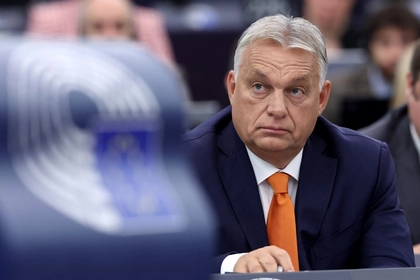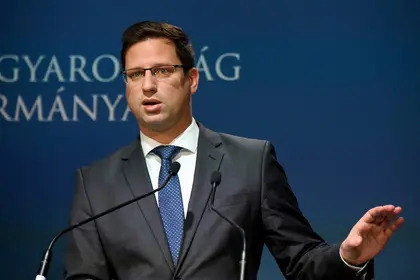Gergely Gulyas, Hungarian prime minister Viktor Orban’s chief of staff, said on March 23 that Hungary would not have any legal basis to arrest Russian President Vladimir Putin if he visited the country, Reuters reported.
JOIN US ON TELEGRAM
Follow our coverage of the war on the @Kyivpost_official.
Hungary signed and ratified the Rome Statute, which created the International Criminal Court (ICC) and has recently issued an arrest warrant for Putin on charges of of illegally deporting hundreds of children from Ukraine, considered a war crime. When asked if Putin would be arrested if he came to Hungary, Gulyas clarified that the Rome Statute had not been incorporated into the Hungarian legal system.
“We can refer to the Hungarian law and based on that we cannot arrest the Russian President... as the ICC’s statute has not been promulgated in Hungary,” he claimed.
When questioned about the arrest warrant issued against Putin, Gulyas stated that the Hungarian government has not yet taken a position on the matter. He expressed his personal opinion that such decisions are not ideal, as they may lead to an escalation rather than promoting peace.
Mykhailo Podolyak, adviser to the head of the Office of the President of Ukraine, has already responded to the statement made by Gulyas. Podolyak criticized Hungary’s refusal to follow the rules, stating that the country continues to damage its reputation and will face difficulties in communication with the EU in the future.

Orban 'Does Not Represent' EU on Georgia Visit: Borrell
“They can say whatever they want, but signing international agreements means fulfilling obligations,” he said.
Podolyak put it less diplomatically in a tweet: “Hungary repeatedly nullifies its reputation by directly supporting the ru-corpse [sic]. Rejecting even its signing of the Rome Statute...”
Podolyak emphasized that world and interstate relations are not an abstraction, and countries must fulfill their commitments under international agreements.
You can also highlight the text and press Ctrl + Enter






